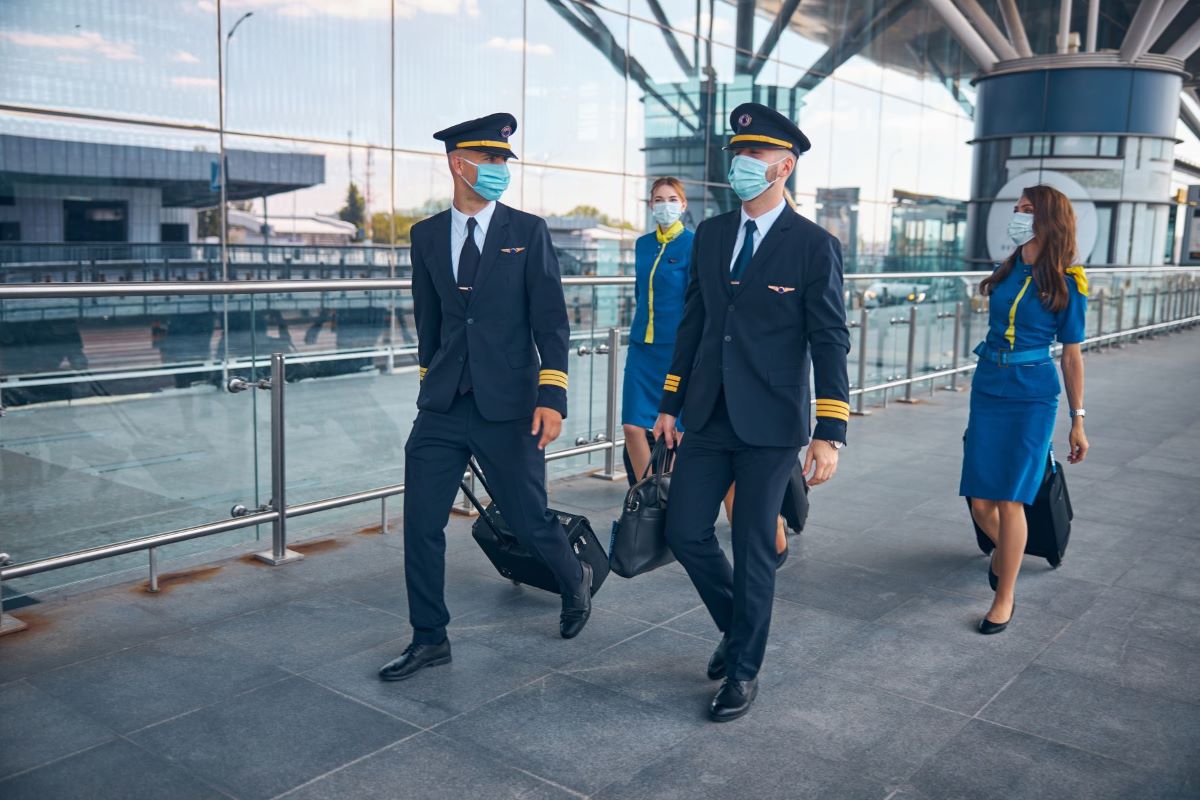While the European aviation industry have been showing strong signs of post-COVID recovery, many aviation businesses still have to work in a survival mode. Crew members have all been living in fear – job security being one of the biggest worries. Airlines are struggling with shortage of regional talent, especially in Europe. However, the issues might not be as bleak if the right approaches are taken sooner than later.
The pandemic has quickly changed the aviation industry – it was reduced to one third of its capacity during COVID-19 and the recovery has been slower than anticipated in the beginning due to the nature of the pandemic. Uncertainty rose among airlines, pilots and crew over the new reality and have been ongoing since. For as many as 40% of pilots and crew job security became the biggest concern, alongside low flying hours or holding no type rating. For 80% of airlines, the lack of regional talent in Europe was the main headache, including working with agencies that are less than proactive at communication with pilots and crew.
Alison Dsouza, Director of Aerviva Aviation Consultancy, a Dubai-based international consultancy, specializing in aviation recruitment and document management, says that these challenges are something new the aviation industry is facing.
“The issues we see today in the market have been elevated by the post-pandemic landscape. While the industry as a whole is showing a rapid recovery overall – with travels picking up again – the demand exceeds the supply, and the industry finds it hard to catch up. If we were to look at pre-pandemic landscape, the issues were different, that is why methods and solutions that worked in the past aren’t effective anymore. No one projected the long-term effects a pandemic would create because, unlike other industries, working from home was not an option for pilots and airlines.”
Dsouza notes that the industry is working around the clock to find solutions that would work long-term for such interim issues through pilot and crew training, flexibility with employment contracts and providing job security where possible – all while dealing with active business recovery. What she sees as a possible solution for the European market is a consultancy that already has experience under their belt.
“The European market right now is experiencing very difficult times, on both sides. The main issues at hand can be solved, though – it’s a matter of approach. Consultancies that deal with aviation recruitment simply have to be pro-active and take a personal approach, especially during these challenging times. That is one of the reasons why we see the need to enter the European market. Being in the industry for over 7 years now, we’ve dealt with various problems that have occurred in the industry, adapted to the challenging landscapes, like pre- and post-pandemic, for example. which helped us grow in this competitive and dynamic industry.”
According to Dsouza, the consultancy has been successfully working with 10 airlines globally and have over 1,000 active contracts – which are all post-pandemic and seems to be growing year-on-year. This, in turn, indicates fast and steady recovery to an industry that was only 2% functional during the pandemic.
Some of the previously mentioned problems related to pilot shortages, as well as affected mental health of pilots and crew, and pay cuts will continue to persist, even if numbers return to pre-pandemic levels as these need to take time to recover alongside the improving situation. They would, however, continue for longer only if there were no active steps being taken to identify and find solutions for each one.

